Cold sores are a real nuisance, popping up unexpectedly and often at the most inconvenient times. The herpes virus, the culprit behind these painful blisters, can be challenging to manage. Enter lemon balm—a member of the mint family with a long history of use in herbal medicine. Lemon balm is making waves for its soothing effects and potential antiviral properties. Did you know clinical trials have shown that it can help reduce healing time and the frequency of cold sore outbreaks?
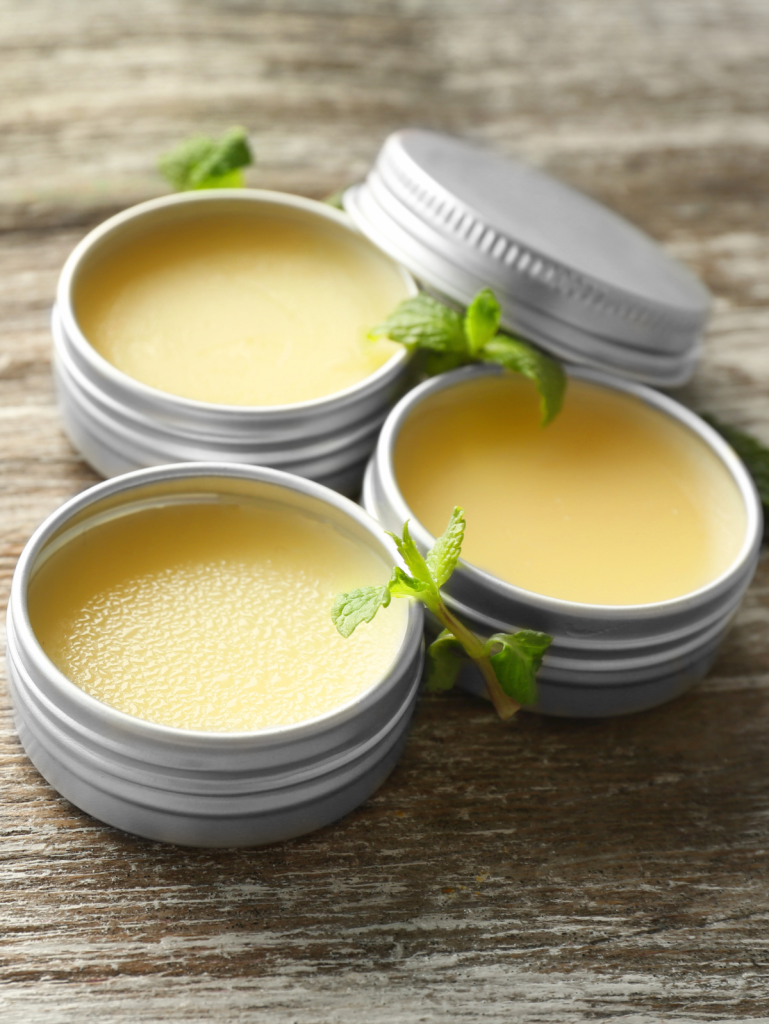
Lemon balm is a natural powerhouse that brings relief through its active ingredients like rosmarinic acid and essential oils. For those wary of side effects from traditional creams, this herbal remedy offers a gentle alternative. It’s famed for its traditional use in easing nervous system woes, but it also shines with frequent cold sores. The beauty of this versatile plant lies in how easy it is to incorporate into daily routines—be it through infused oil or fresh lemon balm supplements.
Let’s get practical and dive into a simple recipe for a healing lemon balm salve. You’ll need coconut oil, shea butter, and a few drops of essential oil to amplify those antiviral properties. Combine these with dried herb or lemon balm extract for a salve that’s as soothing as it is effective. Olive oil makes a great carrier oil, and with a bit of prep, you can have a personalized remedy stored at room temperature, ready to tackle that pesky affected area. Always consult with a healthcare provider or seek professional medical advice before starting any new remedy, especially if you have existing health conditions or use other medications.
Understanding Cold Sores
Cold sores are those annoying, painful blisters that pop up around your lips. They seem to arrive out of nowhere but understanding what brings them on can help you stay one step ahead. Let’s dig into the culprits behind these pesky visitors.
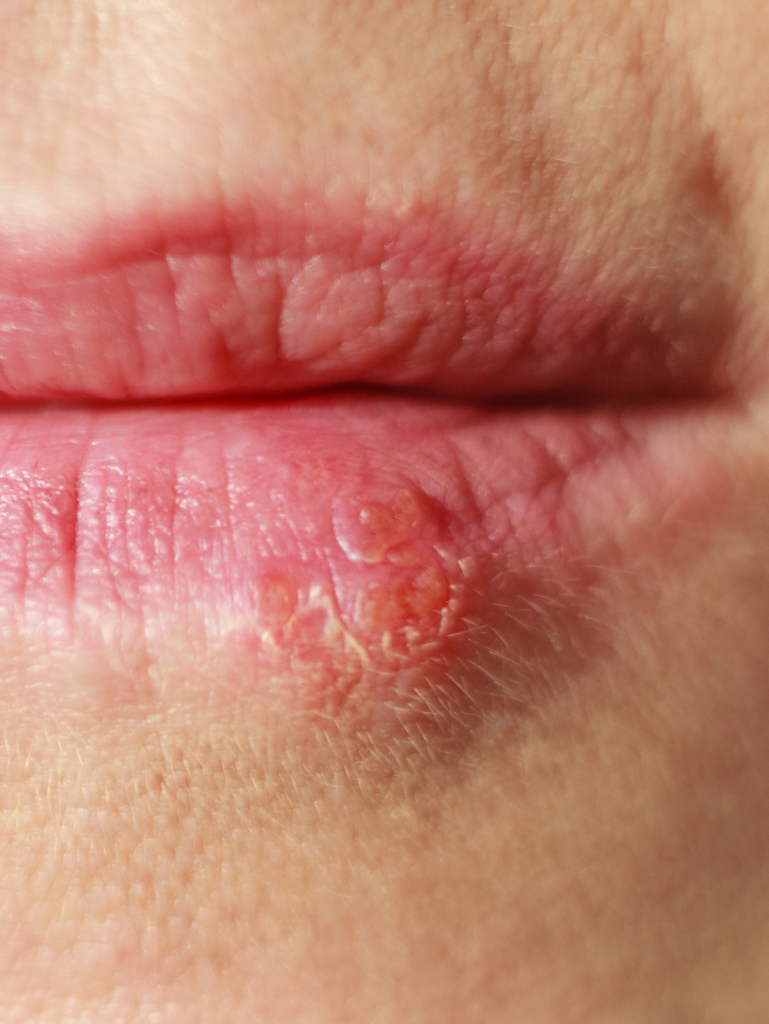
What Causes Cold Sores?
Cold sores are primarily caused by the herpes simplex virus (HSV), a sneaky virus that can lay dormant in your nervous system for long periods. When it does decide to make an appearance, several factors can trigger an outbreak:
- Stress: Like a spark to a fuse, stress can set off cold sore outbreaks. Whether it’s from school, work, or personal issues, when stress levels rise, so do the chances of a cold sore appearing.
- Illness: If you’re fighting off another medical condition, your immune system might be a bit too busy to keep the herpes virus in check. It’s like a bouncer who’s distracted, letting an unwanted guest slip through.
- Immune System Function: A strong immune system is your best defense. But if yours is struggling due to lack of sleep, poor diet, or another health condition, cold sores might just see an opportunity to crash the party.
- Hormonal Changes: For some, hormonal shifts, like those during menstruation, pregnancy, or thyroid changes, can trigger an episode. It’s as if the body’s internal balance tips and invites the virus to come out and play.
While these are common triggers, it’s important to remember that everyone is different. Identifying your personal triggers can be a good idea, allowing you to take preventive action where possible.
These blisters may be small, but they can cause big discomfort. By knowing what sets them off, you can better manage and hopefully reduce their unwanted visits.
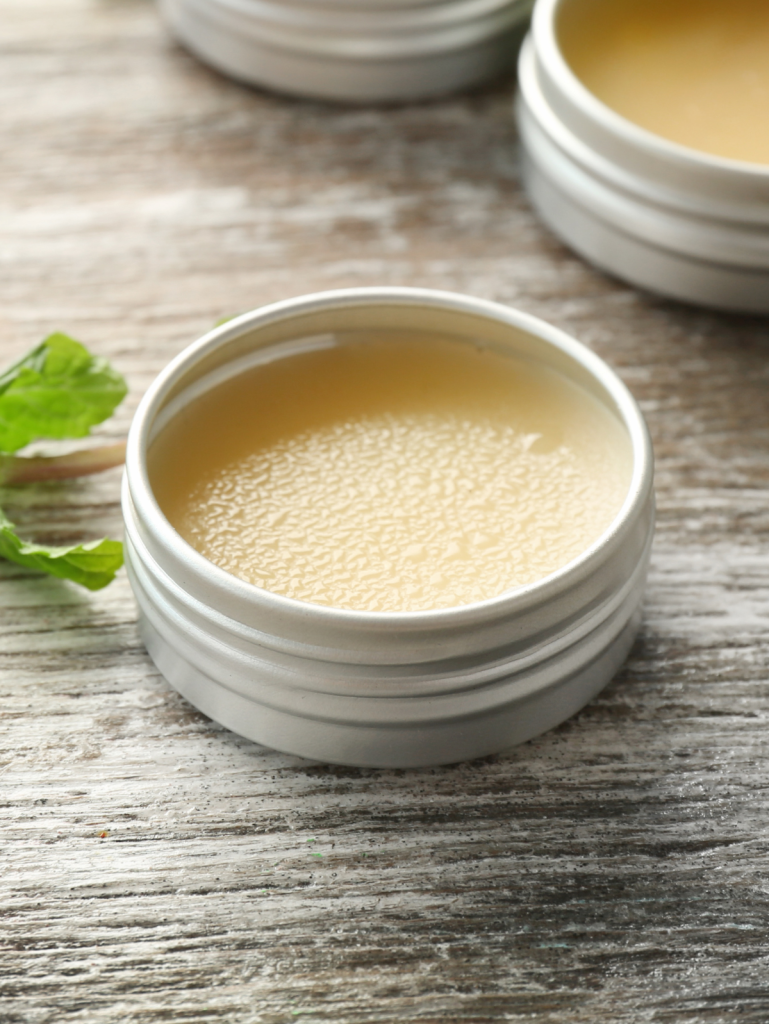
The Benefits of Lemon Balm
Lemon balm, a member of the mint family, is making waves as a natural remedy for managing cold sores. For those dealing with frequent herpes outbreaks, this herb could offer some much-needed relief. Its antiviral properties are key to its effectiveness. Let’s explore the active ingredients and scientific backing that make lemon balm a standout choice. There are so many benefits of lemon balm.
Active Ingredients in Lemon Balm
Lemon balm packs a punch with a range of active ingredients that contribute to its healing powers. These vital compounds work together to help reduce the discomfort of painful blisters and speed up healing time. Here’s a closer look at what’s inside:
- Rosmarinic Acid: Known for its powerful antiviral properties, rosmarinic acid helps combat the herpes virus. It also has antioxidant effects, lending a hand in supporting the immune system.
- Flavonoids: These are plant compounds with potent antiviral properties. In lemon balm, flavonoids work to inhibit the spread of the herpes virus, reducing the duration of outbreaks.
- Essential Oils: The essential oils in lemon balm include citral and citronellal. These oils not only add to the soothing aroma but also have antimicrobial effects, enhancing the herb’s ability to fight the herpes virus.
The combination of these active ingredients forms a natural shield against cold sore outbreaks, offering a gentle yet effective approach to managing symptoms.
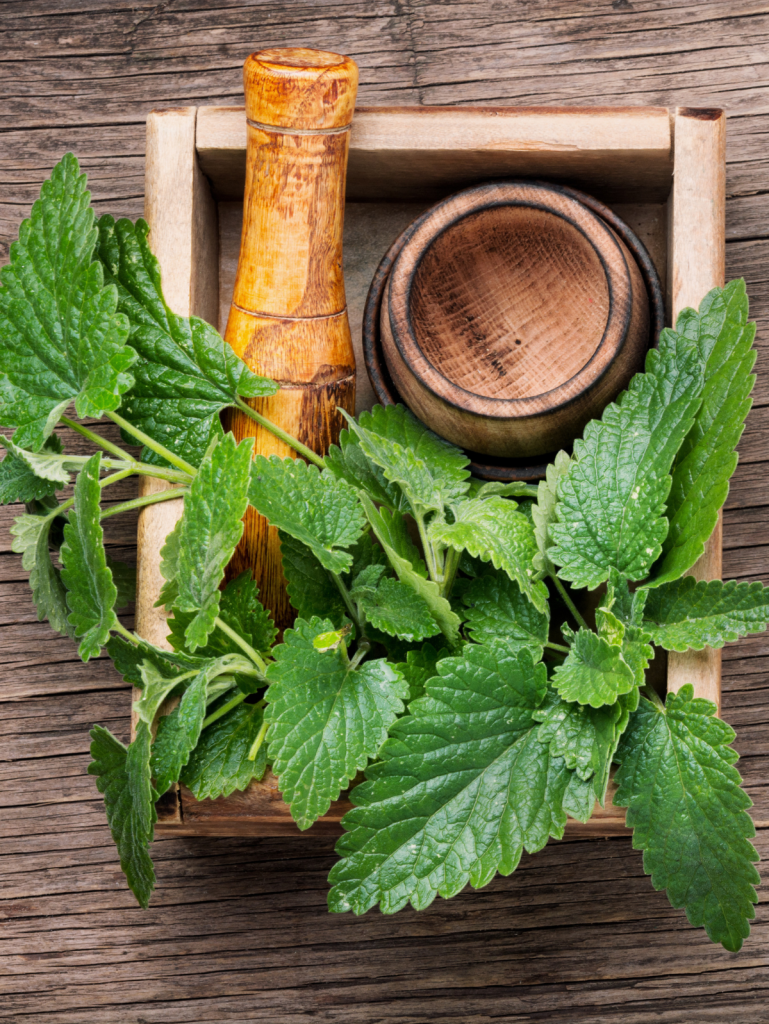
Scientific Evidence Supporting Lemon Balm
The effectiveness of lemon balm isn’t based just on traditional use; it’s backed by scientific studies. Researchers have explored its potential, providing concrete evidence of its benefits for those dealing with herpes outbreaks.
- Clinical Trials: Notably, clinical trials have shown the antiviral potential of lemon balm. A double-blind trial highlighted its effectiveness in reducing the duration of herpes simplex virus type outbreaks. Participants reported less severe symptoms and quicker healing time.
- Animal Studies: In addition to trials with humans, animal studies have reinforced the antiviral properties of lemon balm. These studies demonstrated a significant reduction in the healing time of lesions, supporting findings from human studies.
The scientific community, including researchers like Schnitzler P. and Nolkemper S., have explored these benefits through dedicated studies available in PubMed.
Are you interested in a more hands-on approach to using lemon balm? Here’s a simple recipe to create your own lemon balm salve for cold sores. This recipe combines natural ingredients like coconut oil and lemon balm extract to create a soothing balm that can be applied to the affected area to speed up healing time.
Lemon Balm Salve Recipe for Cold Sores
To make a lemon balm salve, follow these steps:
Ingredients
- 1 cup of coconut oil
- A handful of fresh lemon balm or 1/2 cup dried herb
- 2 tablespoons beeswax or candelilla wax
- 1/2 cup of olive oil (as a carrier oil)
- 10 drops of tea tree oil
- Optional: 1 teaspoon vitamin E oil (for added skin health)
How to Make a Salve of Lemon Balm for Cold Sores
- Heat the coconut oil over low heat. Add the lemon balm and let it steep for an hour to create an infused oil.
- Strain out the herb, leaving the infused oil in the pot.
- Add beeswax and olive oil to the infused oil, stirring gently until melted.
- Mix in tea tree oil and vitamin E oil.
- Pour the mixture into small jars or tins, and let it cool until it reaches room temperature.
This salve can be stored at room temperature and applied regularly to help reduce the appearance of cold sores and minimize healing time. With its antiviral properties and natural benefits, it’s a great addition to your herbal medicine toolkit. Always check with a healthcare provider before starting any new treatment.
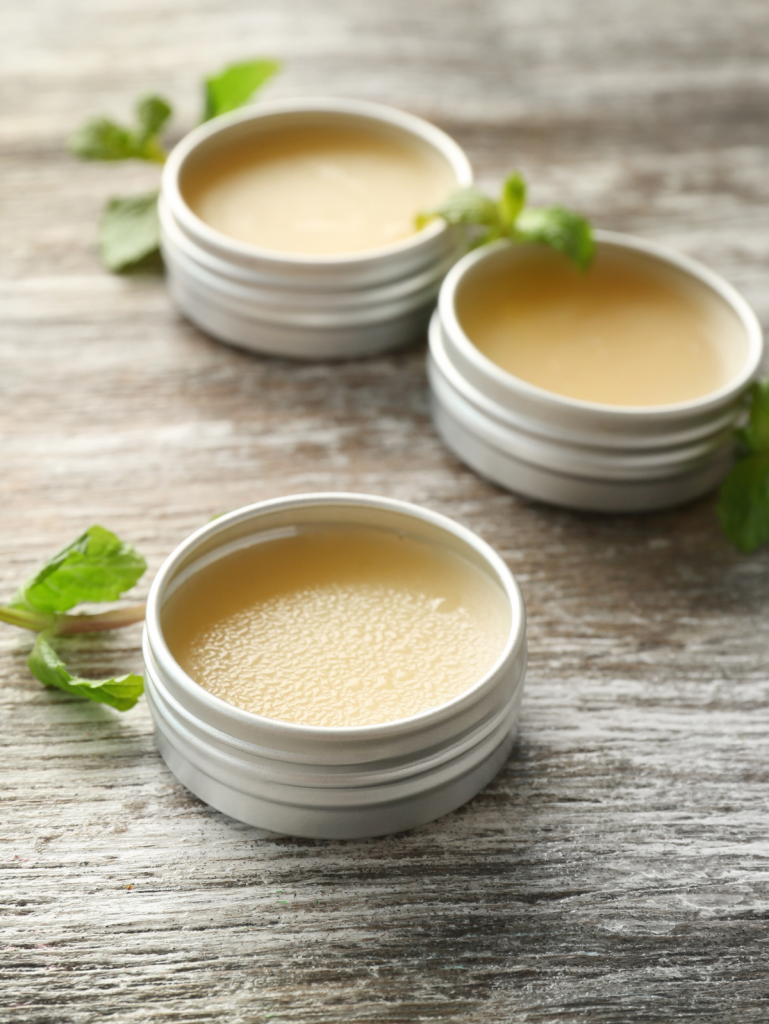
How to Use Lemon Balm for Cold Sores
Lemon balm, a member of the mint family, is not just another herb in your garden. With active ingredients like rosmarinic acid, lemon balm has been used in herbal medicine for centuries due to its antiviral properties. If you’re dealing with painful blisters from cold sores, you might want to consider trying it. Lemon balm can be particularly effective in minimizing cold sore outbreaks, thanks to its antiviral effect of aqueous extracts of the Melissa officinalis plant. Essential oils derived from lemon balm like melissa oil are backed by human studies showing beneficial effects against the herpes virus. Let’s dive into how you can use lemon balm to make a soothing salve and more.
Preparation and Application Tips
Mastering the preparation of lemon balm extract and using it effectively is crucial. You wouldn’t want a delayed healing time on your hands! Knowing the best practices for application can make a world of difference in managing frequent cold sores.
- Extract Preparation: You can easily prepare lemon balm extract by soaking dried leaves in a carrier oil such as olive oil for two weeks. This creates an infused oil rich in antiviral properties.
- Application Tips: Use a cotton swab to dab the salve directly onto the affected area. Avoid using your fingers to reduce the risk of spreading the herpes virus. Apply several times a day for a rapid effect.
- Storage: Keep your salve stored at room temperature to maintain its consistency and effectiveness.
Using lemon balm is a good idea for those looking for a natural remedy for cold sores. Its antiviral potential offers a healing path that blends traditional use with modern understanding.
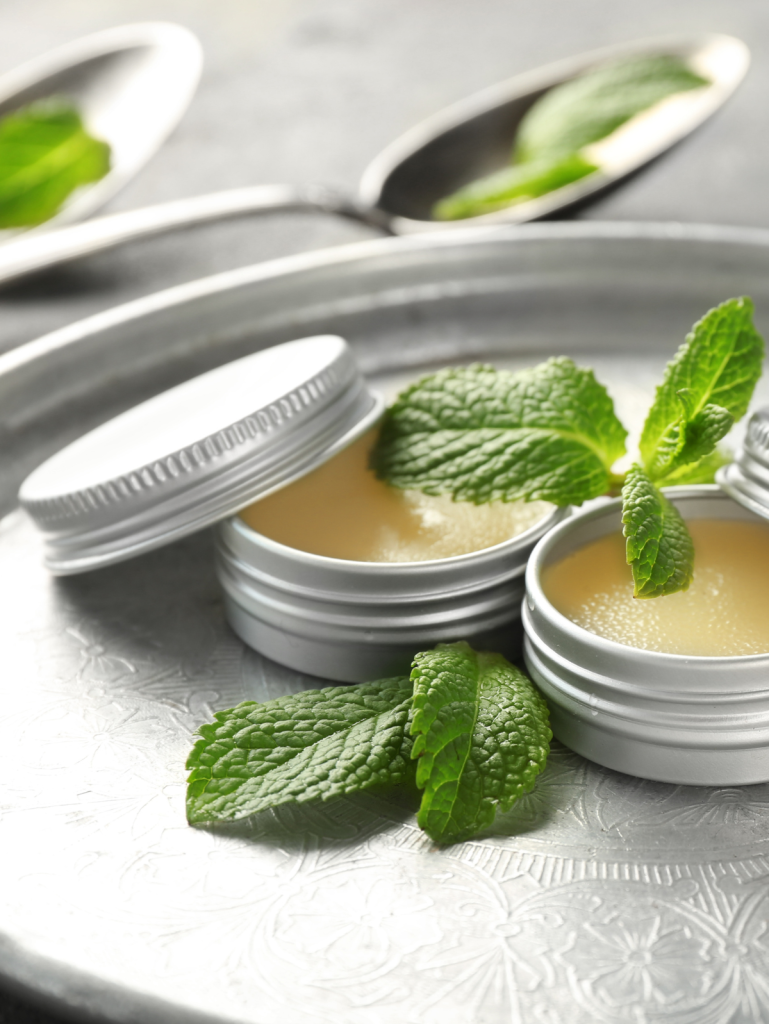
Combining Lemon Balm with Other Natural Ingredients
Lemon balm is a powerhouse from the mint family known for its calming and antiviral properties. When it comes to tackling cold sores, combining lemon balm with other natural ingredients can enhance its effectiveness. Let’s explore how you can boost the benefits of lemon balm through clever combinations.
Essential Oils to Complement Lemon Balm
Using essential oils alongside lemon balm can create a potent blend that targets cold sores more effectively. Tea tree oil, for example, is celebrated for its antiviral and healing properties. It can work in harmony with lemon balm to speed up healing time and reduce the frequency of cold sore outbreaks. Here are some key benefits of adding tea tree oil:
- Antiviral Properties: Like lemon balm, tea tree oil offers strong antiviral effects, helping to combat the herpes simplex virus type that causes cold sores.
- Healing Time: Incorporating tea tree oil can ease painful blisters, speeding up recovery and reducing healing time.
- Synergistic Effects: When combined with lemon balm extract, these oils can significantly enhance calming effects, relieving discomfort more swiftly.
Other oils, such as lavender and peppermint, also possess properties that can aid in soothing the affected area. When crafting your lip balm for cold sore relief, consider adding a few drops of essential oil to your lemon balm preparation for added benefits.
This salve, with its blend of calming coconut oil and antiviral lemon balm, alongside the potent qualities of melissa oil and tea tree oil, aims to provide quick relief from cold sores.
By incorporating these natural ingredients, you not only enhance the antiviral potential of your treatment but also create a lip balm that makes use of traditional herbal medicine knowledge. Remember, while these remedies can be beneficial, consulting a healthcare provider before trying a new regimen is always a good idea, especially if you have specific health conditions or are prone to frequent cold sores.
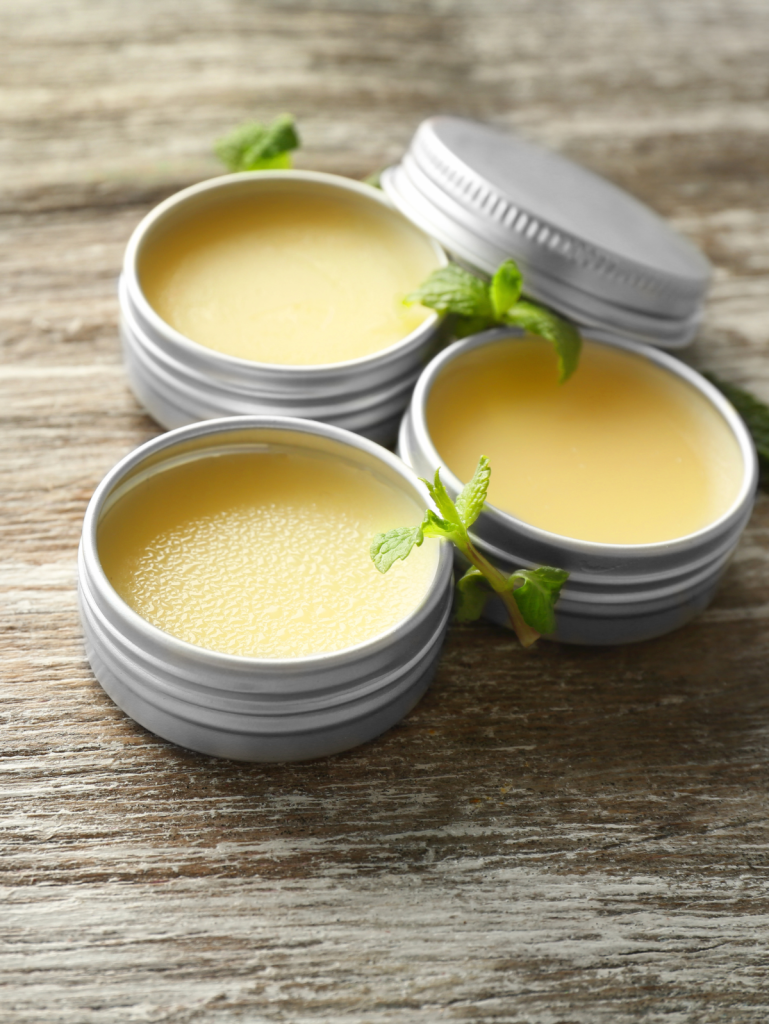
Safety and Side Effects
When it comes to using lemon balm for cold sores, it’s important to be aware of the safety and potential side effects. Even though lemon balm is a natural remedy that’s been used for centuries, understanding when and how to use it can help you maximize its benefits while minimizing any risks.
When to Seek Medical Attention
While lemon balm can be effective for many, there are times when it’s a good idea to seek help from a healthcare provider. If you notice frequent cold sore outbreaks that don’t seem to respond to lemon balm or any other remedies, it might be time to consult with a professional. Persistent or severe symptoms could indicate other underlying health conditions that need specific treatment.
You should also get medical advice if you experience the following with cold sores:
- Extreme pain or blisters that are larger than usual.
- Cold sores spreading to other areas, such as the eyes.
- Fever, swollen glands, or other systemic symptoms.
Remember, while lemon balm’s antiviral properties work wonders for many, it’s not a one-size-fits-all solution. Everyone’s immune system is unique, so personalized treatment from a healthcare professional is always best.
Potential Side Effects
Lemon balm is generally safe for external use, but as with any remedy, some people might experience side effects. Skin irritations, such as redness or a mild rash, may occur, especially if you have sensitive skin. It’s a good idea to test any lemon balm preparation on a small area before applying it to the affected area.
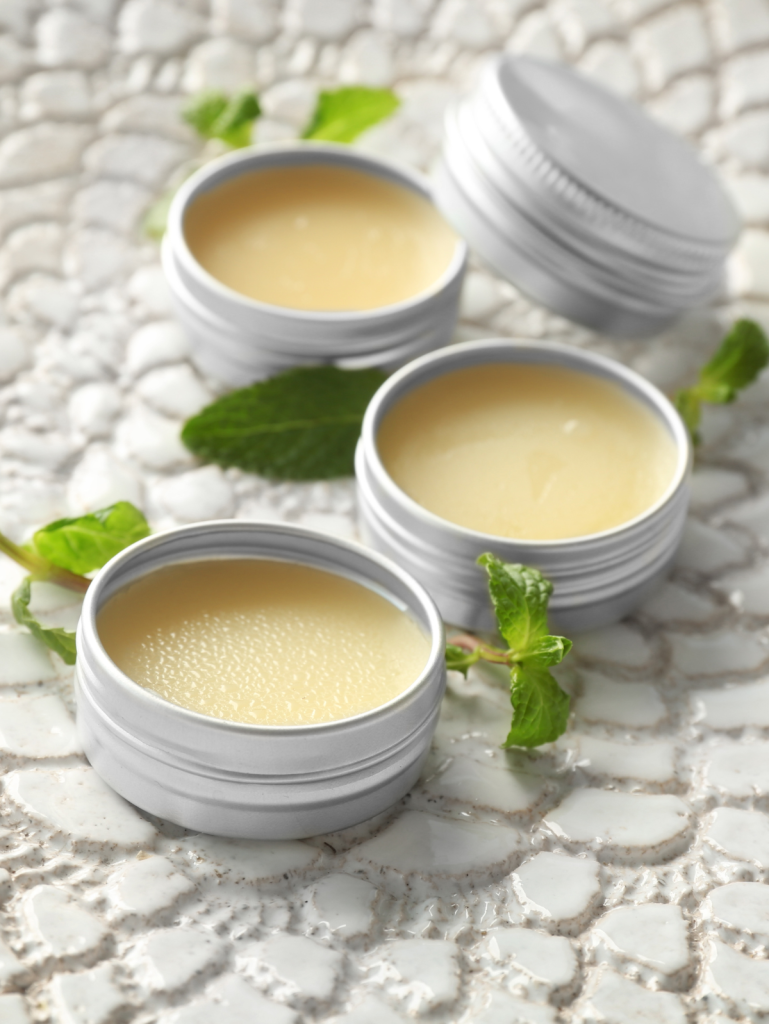


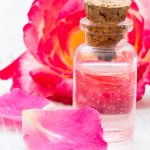
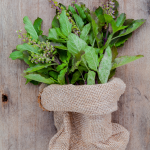
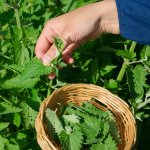

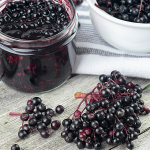
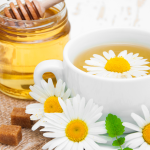

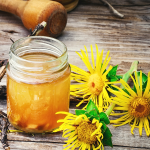
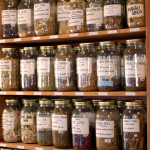
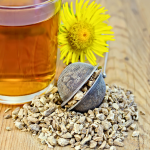
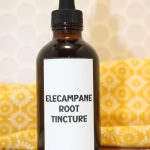
Leave a Reply